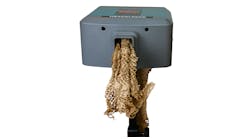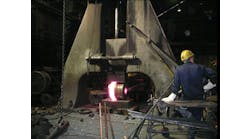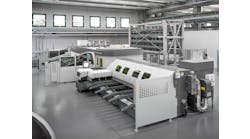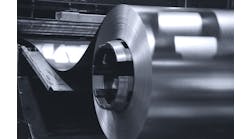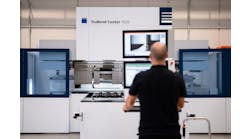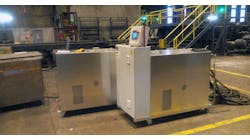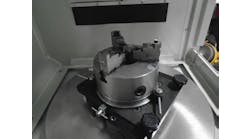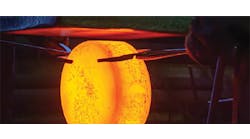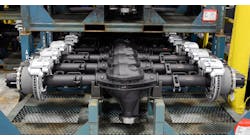The forging industry is becoming more quality- and precision-oriented, more competitive, and more global, primarily because of the demands of customers like aerospace system developers and manufacturers, but equally because of the rapid advance of material science and metal-forming technology. Science and technology raise lesser-known forgers to the level of global influence.
CMK is the acronym for the Stupino Metallurgical Company, a diversified Russian manufacturer of aerospace materials and structures, about 80 km south of Moscow. For over 75 years CMK has provided the Russian aerospace industry with aluminum, steel, nickel, and titanium alloys in ingots, billets and bars, and closed-die forgings of critical parts in various metal alloys. CMK is heavily involved in the part production of aircraft and aerospace engines.
After privatization, the enterprise proceeded with a series of investments in state-of-the-art equipment and modernization of existing production machinery. All of the major equipment was sourced by CMK from the same European and U.S. technology sources that have defined global standards in forging process quality and productivity, with the purpose of improving the quality of its finished products, increasing production efficiency, and launching CMK as a supplier to Western aerospace and power-generation manufacturing, with the competitive standards such customers require.
Being a major provider of metal products for over seven decades, the company has developed numerous materials and production technologies, and has an estimable team of engineers and scientists at work in research and operations.
The present CMK enterprise produces ingots, bars, and billets as casting and forging stock through vacuum induction melting (VIM), vacuum arc refining (VAR), and electro-slag reduction (ESR). Closed-die and open-die forgings are produced in various critical-alloy grades, as are seamless rolled rings.
Powder-metal products are produced in nickel- and titanium-based alloys.
CMK supplies these products not only for aerospace manufacturing but also for applications in oil-and-gas and energy markets. It has secured ISO and Nadcap accreditations as required for aerospace and energy industry suppliers.
The equipment in use for these operations have resulted from significant investments, including more than €50 million (est. $57 million) over the past three years in new equipment and upgrades to existing equipment.
Also, CMK has an advanced metal-testing center that includes all of the equipment required for destructive and non-destructive testing, such as immersion sonic testing for billets and die forgings, and CMM equipment for finished products. These labs are Nadcap-accredited, too.
CMK’s capabilities for closed-die forgings includes parts weighing over 1 metric ton and measuring up to 1,000 mm diameter. Closed-die forgings (mainly discs) are offered as close-to-finish-machined products thanks to on-site CNC finishing operations.
The CMK strategy for competing in Western markets is simple: In addition to producing the raw materials in-house, it counts on the lower value-added cost of producing in Russia, meaning it is able to quote projects at a lower cost than comparable products produced in the West. It reports success in this strategy, too, with several major European customers realizing the cost, high-quality, and on-time-delivery advantages of forged parts from CMK. The company is supplying forgings to these customers regularly, indicating the customers’ satisfaction.
Eitan Fuchs is a senior manufacturing consultant. Contact him at [email protected]
